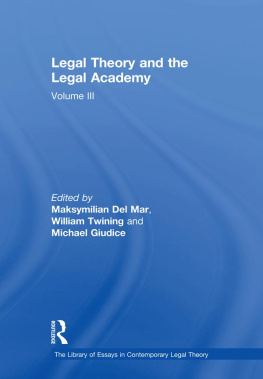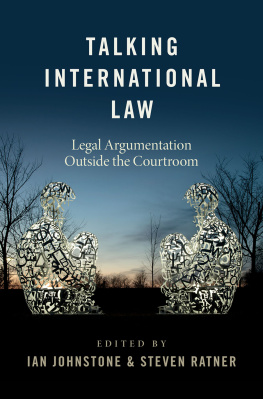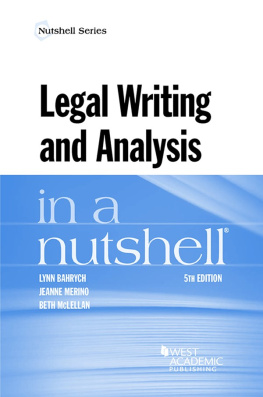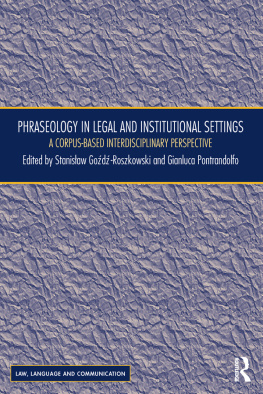Marcus Galdia - Lectures on Legal Linguistics
Here you can read online Marcus Galdia - Lectures on Legal Linguistics full text of the book (entire story) in english for free. Download pdf and epub, get meaning, cover and reviews about this ebook. City: S.l., year: 2017, publisher: Peter Lang, genre: Home and family. Description of the work, (preface) as well as reviews are available. Best literature library LitArk.com created for fans of good reading and offers a wide selection of genres:
Romance novel
Science fiction
Adventure
Detective
Science
History
Home and family
Prose
Art
Politics
Computer
Non-fiction
Religion
Business
Children
Humor
Choose a favorite category and find really read worthwhile books. Enjoy immersion in the world of imagination, feel the emotions of the characters or learn something new for yourself, make an fascinating discovery.

- Book:Lectures on Legal Linguistics
- Author:
- Publisher:Peter Lang
- Genre:
- Year:2017
- City:S.l.
- Rating:3 / 5
- Favourites:Add to favourites
- Your mark:
- 60
- 1
- 2
- 3
- 4
- 5
Lectures on Legal Linguistics: summary, description and annotation
We offer to read an annotation, description, summary or preface (depends on what the author of the book "Lectures on Legal Linguistics" wrote himself). If you haven't found the necessary information about the book — write in the comments, we will try to find it.
Lectures on Legal Linguistics — read online for free the complete book (whole text) full work
Below is the text of the book, divided by pages. System saving the place of the last page read, allows you to conveniently read the book "Lectures on Legal Linguistics" online for free, without having to search again every time where you left off. Put a bookmark, and you can go to the page where you finished reading at any time.
Font size:
Interval:
Bookmark:
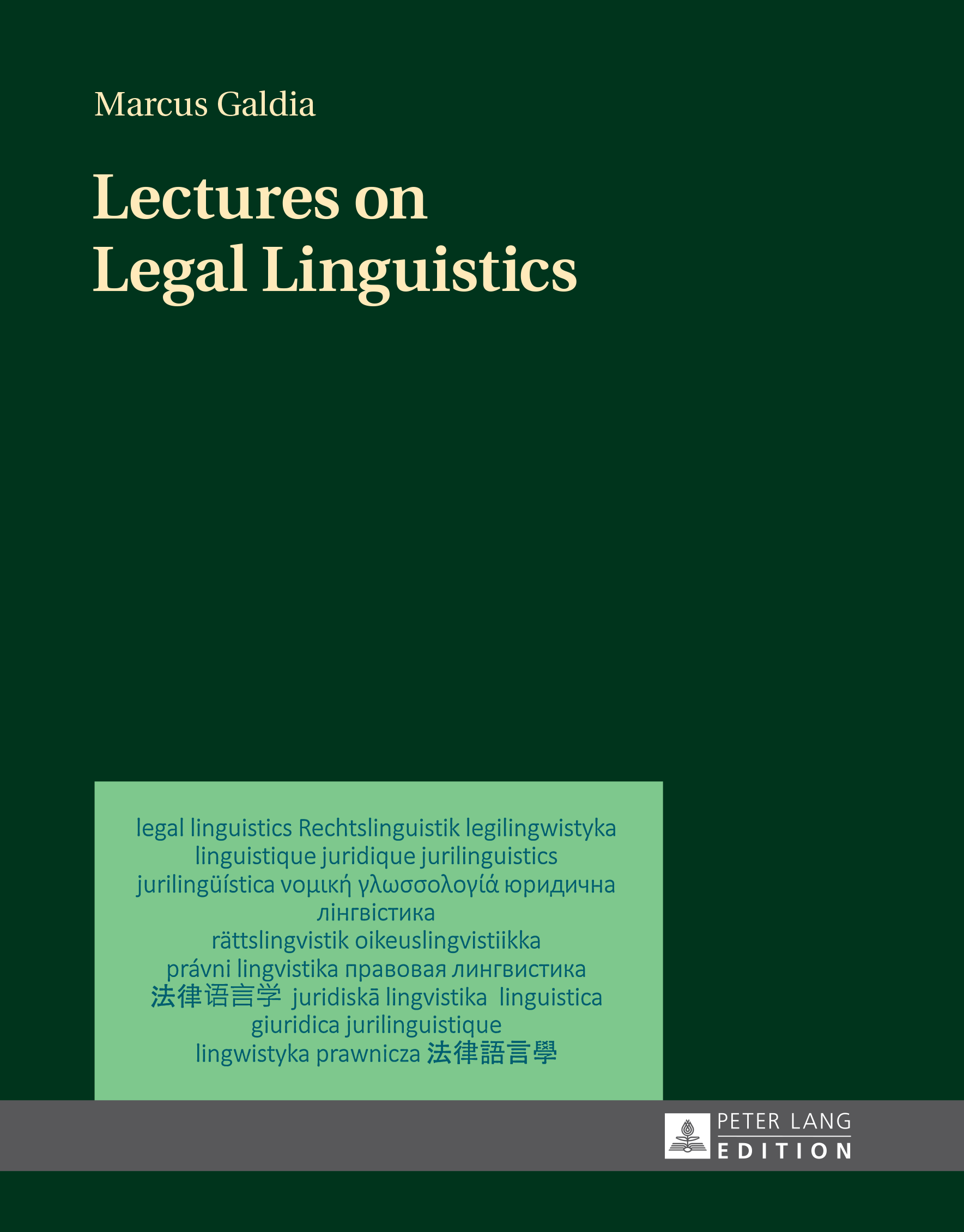
ADA Americans with Disabilities Act (US)
All E.R. All England Law Reports
BGB Brgerliches Gesetzbuch (German Civil Code)
CC Code Civil (French Civil Code)
CIC Corpus Iuris Civilis
CISG United Nations Convention on the International Sale of Goods
D Digesta Iustiniani (Corpus Iuris Civilis)
ECJ European Court of Justice
ECPA Electronic Communication Privacy Act (US)
EU European Union
HTS Harmonized Tariffs Schedules (US)
INCOTERMS International Commercial Terms
OSCE Organization for Security and Co-operation in Europe
PECL Principles of European Contract Law (EU)
PTO Patent and Trade Office (US)
SEC Securities and Exchange Commission (US)
UCC Uniform Commercial Code (US)
UCITA Uniform Computer Information Transactions Act (US)
UNCITRAL United Nations Commission on International Trade Law
UNIDROIT International Institute for the Unification of Private Law
Legal terms, with exception of terms expressed in the English language are provided an abbreviation relating to their origin, e.g. (FR) for French or (CN) for Chinese legal terms. In some contexts American legal terms are marked with (US) and English legal terms with (UK). An asterisk (*) indicates grammatically incorrect structures or constructed lexical units. 21 | 22 22 | 23
Why has this book been written? This book goes back to my Legal Linguistics that appeared 2009 at Peter Lang International Publishing. During several years I used the book and its follower Legal Discourses (2014) in my courses on legal linguistics and comparative law, mainly at Riga Graduate School of Law and at the International University of Monaco. As time went by, I have reshaped, updated and expanded the initial text. Gradually, a new book emerged as a result of a long process of improving and rewriting the text published in 2009. It seemed to me that its version expanded by more than one half can no longer be called a second edition of the previous book notwithstanding the fact that I basically tried to incorporate the initial argument into this text. Therefore, I decided to call this book Lectures on Legal Linguistics. This title clarifies that the text emerged as a result of my teaching experience and that it is also connected to my Legal Linguistics . In Legal Linguistics I tried to sketch the conceptual boundaries of a new branch of knowledge called legal linguistics and in Legal Discourses I attempted at describing the use of legal language toward a broader contextual background. Results achieved in both books allow now a new exposition of main legal-linguistic problems as they appear today in the pragmalinguistic perspective. This book is therefore also more explicative than the initial text that had been largely explorative. Also with this idea in mind, I thought that a new title imposes itself as this book addresses the problems from a readjusted angle. It covers the theoretical approaches from previous texts, yet also makes them more accessible and better readable. The tone used in the exposition of legal-linguistic problems that will follow is therefore close to lecturing, which had been the initial form of the texts compiled within the rewriting process of Legal Linguistics. I do not perceive it necessarily as a disadvantage, yet I have to admit that like all other techniques of text composition it also has some shortcomings such as repetitiveness and some length in the development of the argument due to the structure of the spoken word. However, I tried to counteract the irritations, which might come up through introducing into the current text some succinct paragraphs that cut short basic issues discussed in particular chapters. Thus, my intention to explore the relevant problems at length and readers interest in getting useful information about legal linguistics in a form as short as possible compromise in a text acceptable to its author and hopefully also useful for readers receptive to the particular vision upon the subject matter adopted by the author. Equally, materials included in the last part of the book are now more fully commented than it has been the case in Legal Linguistics in order to contrast or to compare the findings that readers may reach with the perspective adopted by the author.
As mentioned, this book deals with the use of language in the area of law. This is a very general statement that allows different interpretations. Nowadays, questions related to linguistic aspects of law are dealt with in an interdisciplinary branch of knowledge that is frequently called legal linguistics. The number of 23 | 24 material issues as well as theoretical problems discussed in legal linguistics is constantly growing. These problems are addressed by researchers from different points of view. At this stage of its development it seems to be worthwhile to focus on some fundamental issues in the research that may be helpful for the understanding of the scope of the discipline, its findings and its future tasks. Therefore, on the following pages, we will take a closer look at the theoretical foundations and the material achievements of legal linguistics as two main issues which determine its current and future standing among the interdisciplinary branches of knowledge. By doing so, we will clarify the question of what is the relation between law and language that has been traditionally identified as the focal point in all fundamental legal-linguistic research approaches. In other words, we will make plain what are the linguistic aspects of law. As a result of this step, prerequisites of the perception of legal linguistics as a particular legal theory will become understandable as well. Meanwhile, a broad definition of the subject seems to be appropriate because of the vast number of problems canvassed in the legal-linguistic research. In the theoretical part of this book, legal linguistics will be mainly understood as a subject dealing with two questions, namely how law is created and how it is applied with linguistic means. Both main legal-linguistic features of law, i.e. its creation and its application with the help of language, are fundamental to the appreciation of this phenomenon as one of the most efficient social institutions. Creation of law as well as its application in its different forms such as interpretation, argumentation or translation are complex linguistic operations. Their characterization has always been a challenge for the legal theory and it is equally a challenge for the contemporary legal linguistics. Therefore, in this book, I will try to explain how law is interpreted and translated, and use these exemplary facets of the legal practice in an attempt to better understand the legal discourse. This theoretical goal is approached through analyses of legally relevant linguistic materials, mostly court opinions and statutory provisions. The analyses have been carried out in order to demonstrate that the fundamentals of legal linguistics are well anchored in the legal practice.
How is this book structured? The book begins with an introduction into its main theoretical issues based on examples from the legal practice. It demonstrates also in a succinct form what law is actually about when it is seen from the jurists perspective. This question is not without importance for the shaping of legal linguistics which deals with the linguistic manifestation of law and all too often presupposes that whoever engages in it masters perfectly the law. Neither is it realistic to assume that those who master law would also master linguistics. Therefore, in the introductory part some thoughts upon law and upon linguistics are presented in a way that should facilitate the understanding of what will follow. Needless to say that those few pages spent on the parent disciplines of legal linguistics cannot make up for thorough studies of both subjects. In fact, interdisciplinary studies have their inherent constraints and those courageous enough to deal with them will always suffer from a lack of sufficiently founded knowledge. The remedy against 24 | 25 this shortcoming is constant awareness of the researcher about own limits rather than a timid reserve and resignation.
Font size:
Interval:
Bookmark:
Similar books «Lectures on Legal Linguistics»
Look at similar books to Lectures on Legal Linguistics. We have selected literature similar in name and meaning in the hope of providing readers with more options to find new, interesting, not yet read works.
Discussion, reviews of the book Lectures on Legal Linguistics and just readers' own opinions. Leave your comments, write what you think about the work, its meaning or the main characters. Specify what exactly you liked and what you didn't like, and why you think so.

